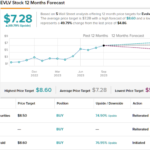
Fahroni
The auto sector will be buzzing in the week ahead as a flurry of sales and deliveries reports pour in from manufacturers ranging from NIO (NIO) and XPeng (XPEV) in China to Tesla (NASDAQ:TSLA) and Rivian Automotive (NASDAQ:RIVN) in the U.S. Those reports will be sandwiched in between a steady stream of news around the United Auto Workers strike, which broadened on Friday to two more assembly plants. The facilities targeted by the union were General Motors’ (NYSE:GM) Lansing Delta Township assembly plant (produces the Buick Enclave and Chevrolet Traverse) and Ford Motor’s (NYSE:F) Chicago assembly plant (produces the Ford Explorer, Police Interceptor, Lincoln Aviator). The UAW did not take further strike action Stellantis (STLA) due to some progress made with negotiations.
S&P Global Mobility weighed in on the latest developments, noting the UAW’s strategy is to create increasing economic disruption until it achieve the accommodations they seek. This round of talks are said to be the most contentious in decades. “The UAW does continue to strike against similar operations at each of the automakers, choosing vehicle plants with output in the same or similar segments with the September 15 and 29 actions and non-manufacturing operations serving a similar purpose with the September 22 action,” updated S&P Global Mobility Stephanie Brinley. S&P Global Mobility estimated that the Chicago and Lansing plants have a combined output of nearly 2,000 vehicles per day. Volkswagen’s (OTCPK:VLKAF) Navistar is one of the suppliers that could be impacted downstream by the very latest strike actions. Further, UAW strike actions could ultimately lead to cumulative losses reaching hundreds of thousands of units across the sector. J.D. Power noted that retail inventory levels in September are expected to finish around 1.3M units, to mark a 15.4% increase from last month and a large increase of 36.5% compared with September a year ago, but still well below pre-pandemic levels. Manufacturer discounts in September are expected to be relatively flat when compared with August, but have increased materially from a year ago, when incentives were at record lows. Meanwhile, elevated pricing coupled with interest rate increases continue to inflate monthly loan payments and add to worries about auto affordability.
Following UAW’s announcement on the expansion of the strike, Ford (F) held a press conference of its own. The Detroit automaker accused the UAW of holding up the deal primarily over battery plants that will not come online for another two to three years. The UAW then pushed back on that contention by saying that retirement security and healthcare issues are also still unresolved.
Investors with a long-term plan have benefited in the past during UAW strike by snapping up auto supplier stocks at the point of maximum tension. Despite all the drama in Detroit, Bank of America still has Buy ratings on Adient (ADNT), Aptiv (APTV), Asbury Auto (ABG), AutoNation (AN), BorgWarner (BWA), Ferrari (RACE), Fisker (FSR), Ford Motor (F), General Motors (GM), Group 1 Automotive (GPI), Lithia Motors (LAD), Magna International (MGA), Penske Automotive (PAG), Rivian Automotive (RIVN), and Visteon (VC). Wedbush Securities believes the current UAW debacle in Detroit is shining a brighter light on Tesla (TSLA) as a potential winner in the U.S. if costs ramp up for the Detroit automakers. Tesla (TSLA) is expected to miss consensus estimates with its Q3 deliveries report on October 2 due to factory downtimes and shutdown, which could give investors to buy shares on a minor dip. Meanwhile, Baird has Rivian Automotive (RIVN) designated as a bullish Fresh Pick into the company’s upcoming Q3 deliveries report, which is expected to top estimates. Baird thinks sentiment will improve on Rivian Automotive (RIVN) as it continues to realize cost benefits from an improving supply chain and the use of in-house components. Cox Automotive Chief Economist Jonathan Smoke pointed out that Japanese brands are in the best position to benefit from the UAW strike fallout due their lineup of more affordable models at a time consumers are being pressed. In particular, Toyota (TM) is said to look attractive because its supply problems have resolved and it is now increasing vehicle production. On Seeking Alpha, analyst Juxtaposed Ideas warned that the Ford (F) investment thesis has been destabilized by UAW’s pay raise demand and warned investors to be cautious.








